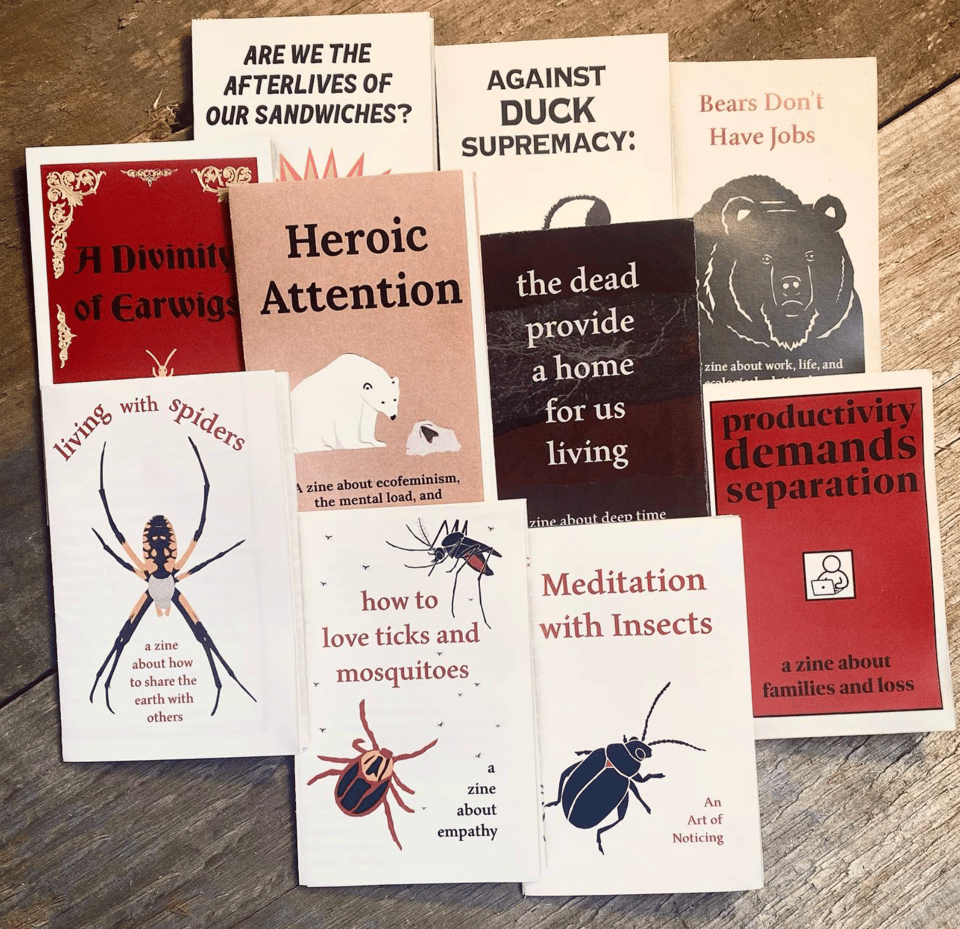06. Fermentation
Sometimes you can accomplish something simply by leaving things in a jar for a few weeks with minimal intervention. The whimsical beet kvass I mentioned in my last email has flourished into a full-on fermentation kick: I now have sauerkraut, carrots, and a ginger bug under development in addition to more kvass. I have been reading Sandor Katz to survey the wide sweep of things that are made by traditional fermentation, and the Noma Guide to Fermentation, seeing the novel possibilities when regional ingredients are fermented by techniques foreign to them: e.g. “maiso,” miso made by fermenting koji with maize rather than with soybeans.
“Wild fermentation” is the delightful term for what I have learning to do: pulling the yeasts from the air, the lactobacilli from the skin of the root vegetables (and from your own skin) and giving them time and an environment to thrive in. Recalling Jack Manno's Privileged Goods framework from issue #3 of this newsletter, this brings a lovely anti-commodity particularity: the microbes in my kitchen, and on my farmer's market carrots, cannot be owned and will be different from the ones in anyone else's kitchen. By practice, I am learning knowledge that I am spared when I buy a bottle of commercial kombucha or a plastic container of yogurt. I did buy some quart canning jars and some simple airlock lids, so some commodities were involved, but I can reuse them basically forever. I don't have space for any real gardening, so fermentation is one accessible way for me to grow living food over a long duration.
One thing you have to watch out for with fermentation is unwanted molds, which can taste bad or make you sick. The first step to support this is to keep any vegetable material out of contact with oxygen, so at a minimum you weight down your beets or cabbage or whatnot to hold it under the brine you're fermenting in. Still it's a good idea to open the jars every few days, see if there is anything to skim off the surface, and then re-seal them. Everything that is really happening is going on below the surface.
So fermentation is also the metaphor for my life in the latest moon: bubbling quietly in the dark, with minor maintenance to keep anything from becoming toxic. I used to be hard on myself when I felt I wasn't making progress on my life-projects, but over time my teachers — fellow life forms ranging from micro- and macro-organisms to living intersubjective collaborations — have shown me various ways to see that bearing fruit is only one phase of a healthy growth cycle, and there are other important phases that you need to fully inhabit without attempting to make them a revenue-generating, marketable commodity.
It is nice when I can reframe a feeling from a negative valence to a positive one: from nervousness to excitement; from failing at something to desiring it; from “I haven't written anything in two weeks” to “I want to write some things.”
And then again, hey, I've been making pickles!
Inspiration
I like the little zines that Kristian Brevik writes about the natural world and different ways of relating to it. I like that they are on paper, I like how they are cleverly folded, and how they unfold to share longer quotations from the texts that inspire them.

This is issue six of my twice-moonthly newsletter. People I've been sending it to all year are still finding it for the first time in their Spam folder, which continues to reap wonderful treats of people saying hi and catching up with me (and this week, I still owe you folks replies ❤️). So in case you are new here I will say again that you can unsubscribe anytime or read the first issue where I talk about why I started a newsletter.
Thank you for reading. See you again April 1 at 8:14pm.
Love,
Orion